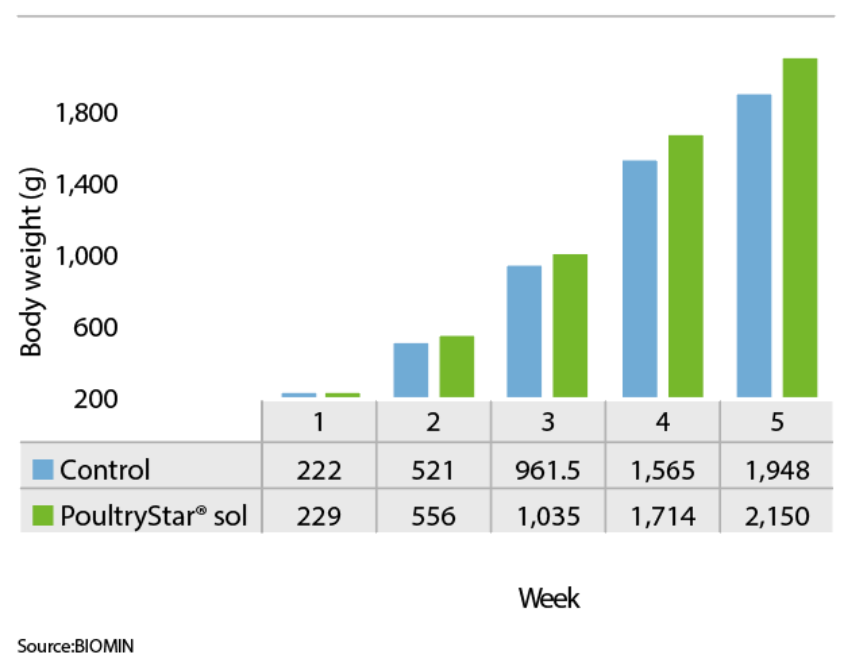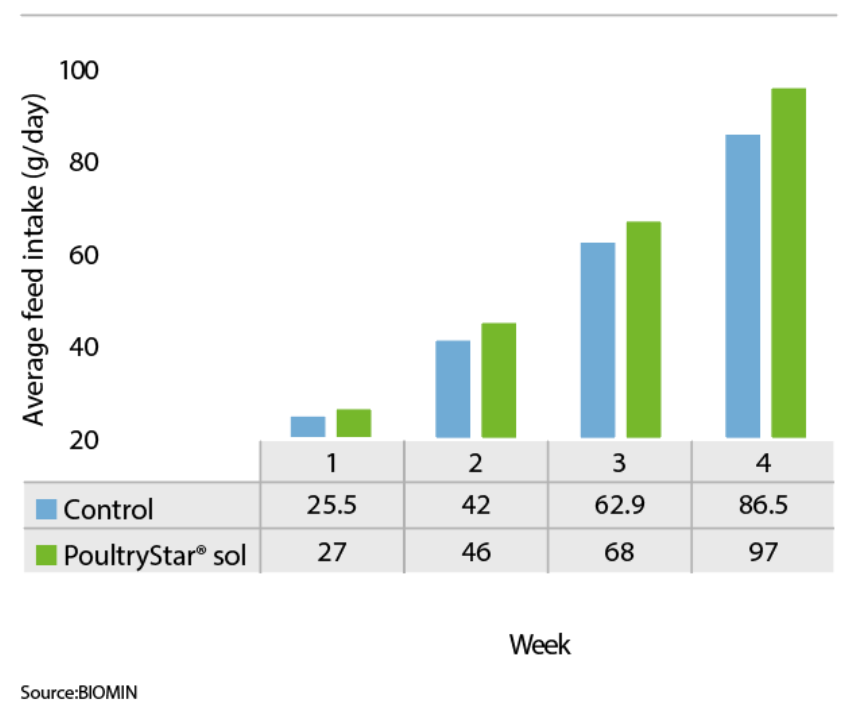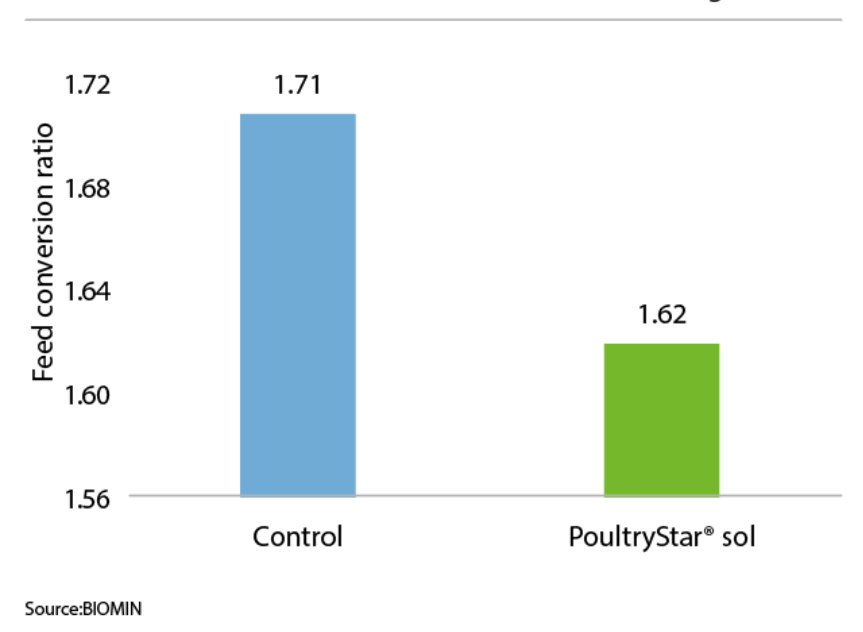



Reducing the impact of heat stress using synbiotics
Heat stress negatively affects bird performance around the world. Synbiotics are an interesting tool for reducing this negative impact. Synbiotics modulate the immune response to the stress caused by high temperatures, consequently improving bird performance.Author: Eduardo A. Vicuña S. DVM MSc Poultry Technical Service Manager
Heat stress
High environmental temperature is among the most important causes of poor performance in the poultry industry. Birds thermoregulate themselves within a certain temperature range, but when exposed to extreme conditions, their physiological mechanisms may not be able to establish an optimal thermic balance. This loss of temperature regulation is called heat stress (Lara and Rostagno, 2013).
Heat stress is the most important environmental influencer of poultry health and performance (Ayo et al., 2011). Electrolytic, immunological, physiological, and anatomical changes are caused by heat stress; the extent of these changes depends on the length of exposure to high temperatures (Boddicker et al., 2014), age and genetic susceptibilities (Felver-Gant et al., 2012).
Heat stress may produce an electrolyte imbalance in poultry (Borges et al., 2004) leading to poor performance (Gamba et al., 2015). Heat stress has also been shown to reduce free blood calcium, a free blood mineral needed for eggshell formation (Odom et al., 1986). Therefore, it is not only general physiology that is affected by this kind of stress, but also livability and meat quality in broilers (Muiruri and Harrison, 1991) as well as egg weight and shell thickness in layers (Wolfenson et al., 2001).
The immune response may also be altered as a result of heat stress (Padgett and Glaser, 2003), affecting the immune system’s capacity to cope with environmental challenges. Changes to the immune system due to heat stress may lead to a reduction in weight of the lymphoid organs, less antibodies circulating in the blood (Felver-Gant et al., 2012), and depression of macrophage phagocytosis activity (Niu et al., 2009). These changes may interfere with the cascade of effects that are triggered when the immune system is presented with an antigen, consequently increasing susceptibility to different pathologies. Important anatomical changes may occur as a consequence of corticosteroids and other substances produced in response to high environmental temperatures. One of these changes is damage to the enteric epithelial surface, which, in extreme cases, may be destroyed, exposing the underlying layers to the gut contents, and reducing the digestion and absorption capacity of the gut (Dokladny et al., 2015).
Synbiotics
Synbiotics are scientifically developed additives that include both prebiotics and probiotics. Probiotics are live bacteria with beneficial activity for the host. Prebiotics are complex indigestible fiber molecules that offer nutrients for live microorganisms (in this case, the bacteria in the prebiotic). Probiotics and prebiotics together have demonstrated a synergistic effect, improving the benefits of beneficial bacteria (Gmeiner et al., 2000), such as the modulation of interleukin secretion, which triggers anti-inflammatory processes (Otte and Podolsky, 2004), the production of protective cytokines leading to a delay of the natural enterocyte cell apoptosis process, and enhancing epithelial cell regeneration (Rakoff-Nahoum et al., 2004).
Figure 1. Weekly body weight (g) over the duration of the trial
Figure 2. Average feed intake (g/day) during the trial
Figure 3. Feed conversion ratio at the end of the trial (5 weeks of age)
Synbiotics and heat stress
Knowing that heat stress has an impact on the gastrointestinal tract and the immune system, synbiotics can be used to reduce this impact through the biological activity of beneficial bacteria such as gut health protection, immunomodulation, and reduction of inflammatory processes. Thus, birds exposed to heat stress but fed diets supplemented with synbiotics have shown better weight gain compared to birds without synbiotic supplementation (Vicente et al., 2007). It has been demonstrated that beneficial bacteria can improve epithelial morphology, feed conversion, and microbial profile (Fuller, 1989). These effects promote good gut health and decrease the impact of heat stress, improving bird performance under difficult environmental conditions.
Summary
Heat stress induces several physiological and anatomical changes in individuals exposed to high environmental temperatures. Some of these changes include electrolytic imbalance, gut health fragility, and a compromised immune response. Synbiotics are scientifically developed additives with biological activities that are able to reduce the impact of heat stress. Synbiotics are an interesting tool that may be used to reduce the economic impact caused by heat stress in the poultry industry.
Case study results
One commercial study was carried out in Colombia with broilers (from day-old to 5 weeks of age) split into two groups: control and treatment group. Intermittent application of PoultryStar® sol was adminstered to the treatment group on days 1, 2, 3, 7, 14, 21, 22, 28, and 35 days of age (nine applications in total). The average temperature throughout the trial was 30°C. The control group and the PoultryStar® sol group contained 5,000 birds each. Body weight (Figure 1) and feed intake (Figure 2) were measured every week. The average body weight of the birds in the PoultryStar® treatment group was heavier compared to the control group. In addition, feed intake and feed conversion ratio (Figure 3) were improved with the supplementation of PoultryStar® compared with the same variables in the control group. The results showed that the PoultryStar® treatment group had higher average body weight, higher feed intake and a lower feed conversion ratio during the trial.














